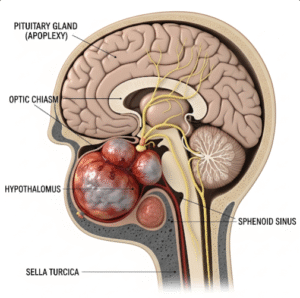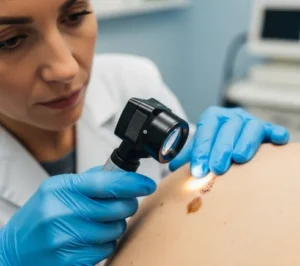Overview
Renal papillary necrosis (RPN) is a condition characterized by the death (necrosis) of the renal papillae—the tips of the pyramids in the kidneys where urine flows into the minor calyces. It can lead to impaired kidney function and complications like urinary tract obstruction and infection. Korea offers advanced diagnostic and treatment facilities to manage this rare but serious kidney disorder effectively.
What is Renal Papillary Necrosis?
Renal papillary necrosis involves ischemic injury and death of the renal papillae due to compromised blood supply. It is often associated with underlying medical conditions that affect kidney perfusion or cause direct damage to kidney tissues.
Symptoms
- Flank or abdominal pain
- Hematuria (blood in urine)
- Passage of tissue fragments or debris in urine
- Fever and signs of infection if complicated by pyelonephritis
- Reduced kidney function in severe cases
Causes
- Diabetes mellitus (most common cause)
- Urinary tract obstruction
- Analgesic (NSAIDs or aspirin) abuse
- Sickle cell disease or trait
- Severe infections or pyelonephritis
- Other vascular diseases affecting the kidney
Risk Factors
- Diabetes, especially poorly controlled
- Chronic analgesic use
- Sickle cell anemia or other hemoglobinopathies
- Recurrent urinary tract infections
- Obstructive uropathy
Complications
- Kidney scarring and loss of function
- Urinary tract obstruction due to sloughed papillae
- Recurrent urinary infections and abscess formation
- Chronic kidney disease progression
Prevention
- Good control of diabetes and other underlying diseases
- Avoidance or cautious use of nephrotoxic drugs such as NSAIDs
- Prompt treatment of urinary infections and obstruction
Treatment Options in Korea
Diagnosis
- Imaging studies including ultrasound, CT urography, and MRI to detect papillary necrosis and complications
- Urinalysis to detect hematuria and debris
- Blood tests to assess kidney function
Medical Treatments
- Management of underlying conditions such as diabetes and infections
- Pain control and hydration
- Antibiotic therapy for infections
- Avoidance of nephrotoxic medications
Interventional & Surgical Treatments
- Relief of urinary obstruction through stenting or nephrostomy
- Surgical removal of necrotic tissue in severe cases
Advanced Therapies
- Use of advanced imaging for early detection and precise treatment planning
- Multidisciplinary care involving nephrologists, urologists, and endocrinologists
Rehabilitation and Support
- Regular monitoring of kidney function
- Management of chronic kidney disease if present
- Lifestyle advice and support for controlling underlying conditions
Top Hospitals or Clinics in Korea for Renal Papillary Necrosis
- Seoul National University Hospital – Expertise in complex kidney disorders and nephrology
- Asan Medical Center – Advanced imaging and interventional urology
- Samsung Medical Center – Comprehensive kidney care and management of complications
- Yonsei Severance Hospital – Integrated nephrology and urology services
- Korea University Anam Hospital – Skilled in managing kidney diseases and related complications













